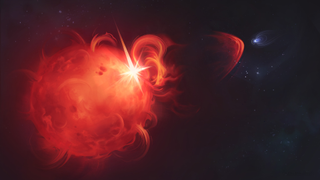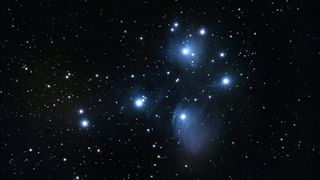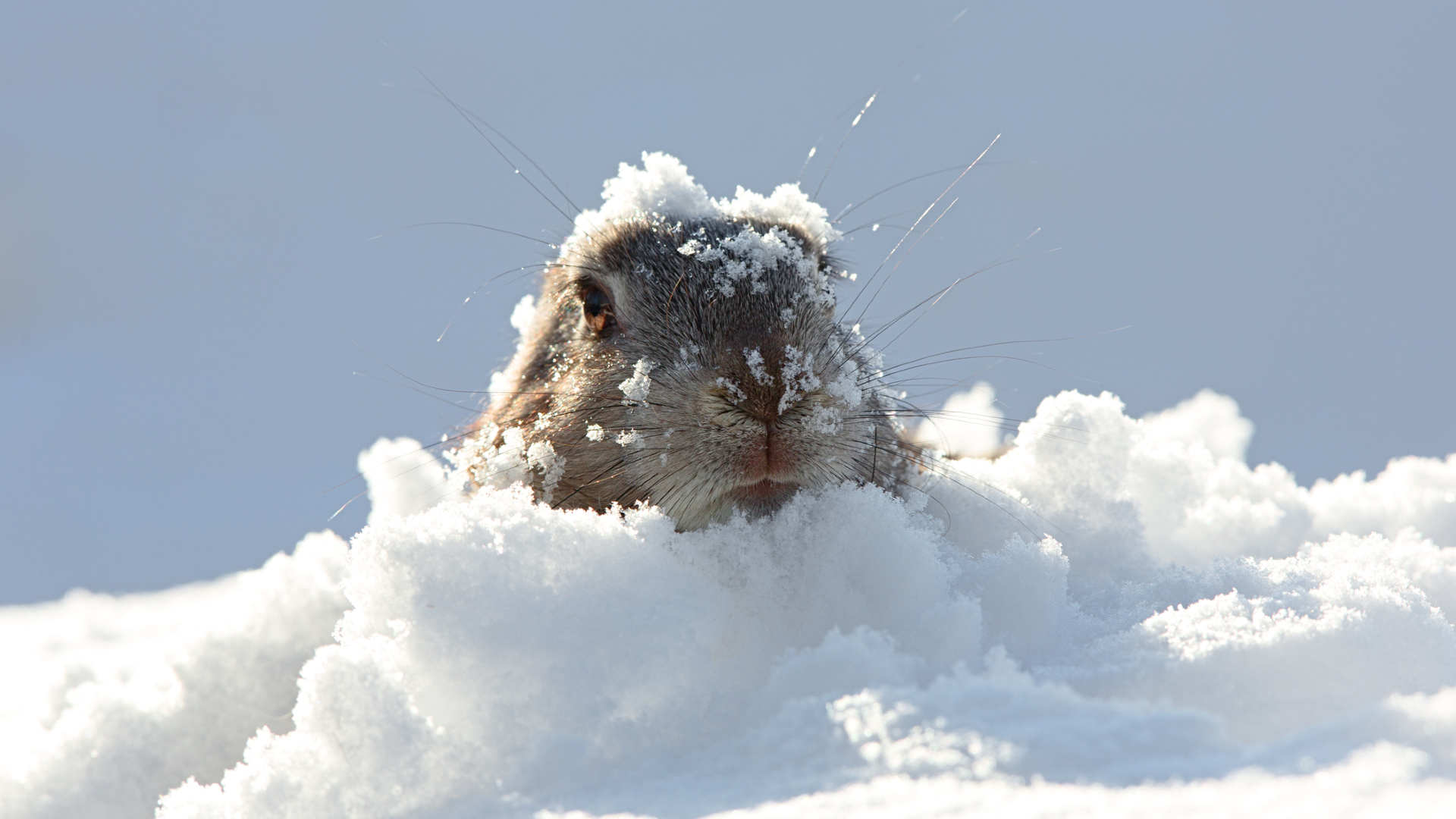Robert Lea is a science journalist in the U.K. whose articles have been published in Physics World, New Scientist, Astronomy Magazine, All About Space, Newsweek and ZME Science. He also writes about science communication for Elsevier and the European Journal of Physics. Rob holds a bachelor of science degree in physics and astronomy from the U.K.’s Open University. Follow him on Twitter @sciencef1rst.
Latest articles by Robert Lea
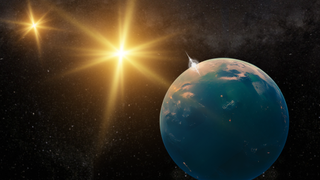
Astronomers discover images of rare Tatooine-like exoplanet with a strange 300-year orbit: 'Exactly how it works is still uncertain'
By Robert Lea published
The planet formed 50 million years after the dinosaurs died, making it incredibly young in cosmic terms.
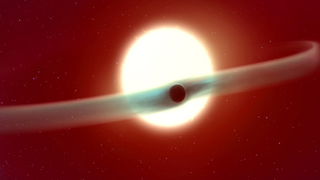
James Webb Space Telescope discovers a hot Jupiter exoplanet leaking twin gas tails that defy explanation
By Robert Lea published
"We are only beginning to discover the true complexity of these worlds."
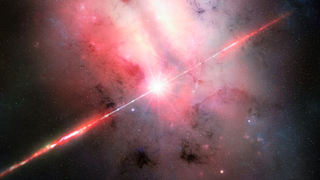
This 7-hour cosmic explosion is the longest gamma-ray burst ever seen. Could it be from an elusive class of black hole?
By Robert Lea published
"This is certainly an outburst unlike any other we've seen in the past 50 years."
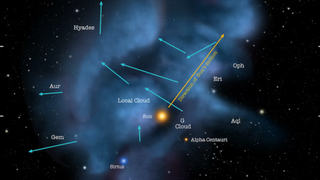
Scientists discover cosmic 'scar' in interstellar clouds left by a close shave between our sun and 2 intruder stars
By Robert Lea published
"It’s kind of a jigsaw puzzle where all the different pieces are moving."
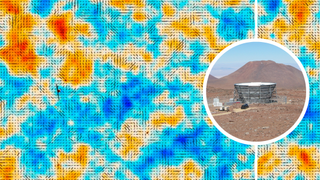
'Hubble tension' is back again as a new cosmic map deepens the puzzle
By Robert Lea published
"It means cleaning house, narrowing the viable paths forward, and no longer spending energy on what are evidently dead ends."
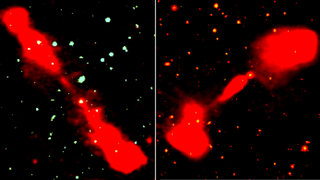
Scientists discover 53 powerful quasars shooting out jets up to 50 times wider than our Milky Way
By Robert Lea published
"The sizes of these radio jets are not comparable to our solar system or even our galaxy."
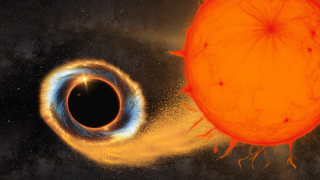
NASA exoplanet-hunting spacecraft hears a red giant star 'singing' to its partner black hole
By Robert Lea published
NASA's exoplanet-hunting spacecraft TESS has heard the song a star-quaking red giant sings to its partner black hole.
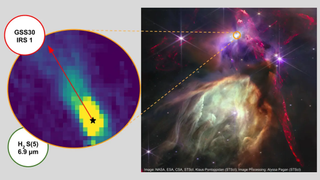
James Webb Space Telescope spies mysterious high-energy radiation in star nursery
By Robert Lea published
Using the James Webb Space Telescope, astronomers have discovered puzzling ultraviolet radiation around young stars in a stellar nursery.
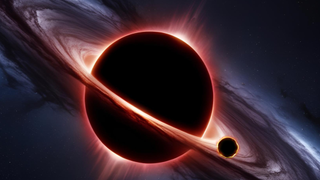
Have gravitational waves provided the first hint of primordial black holes born during the Big Bang?
By Robert Lea published
Scientists may have "heard" the first tantalizing evidence of primordial black holes formed directly from overly dense pockets of matter just after the Big Bang.
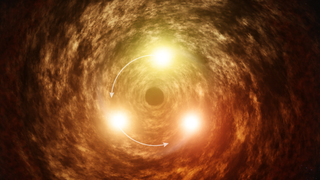
James Webb Space Telescope watches our Milky Way galaxy's monster black hole fire out a flare
By Robert Lea published
"In order to get such high sensitivity in the mid-infrared, one needs to go to space, as the atmosphere severely messes up ground-based observations at this wavelength."
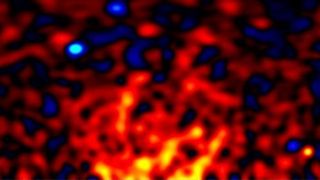
Scientists may have finally 'seen' dark matter for the 1st time
By Robert Lea published
The NASA gamma-ray spacecraft Fermi may have enabled scientists to "see" dark matter, the universe's most mysterious stuff, for the first time.
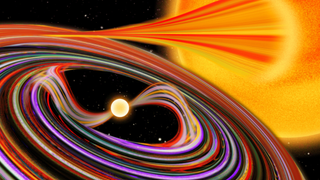
Scientists get 1st good look at a 'vampire star' feeding on its victim
By Robert Lea published
"If you were able to stand somewhat close to the white dwarf's pole, you would see a column of gas stretching 2,000 miles into the sky, and then fanning outward."
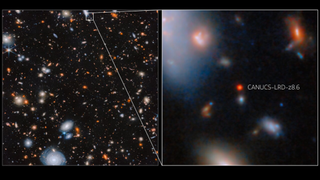
James Webb Space Telescope spots rapidly feeding supermassive black hole in the infant universe: 'This discovery is truly remarkable.'
By Robert Lea published
"This challenges our understanding of black hole and galaxy formation in the early universe."
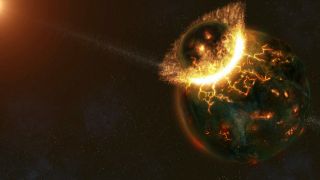
Earth and Theia smashed to birth the moon, but did they first start out as close neighbors?
By Robert Lea published
"The most convincing scenario is that most of the building blocks of Earth and Theia originated in the inner solar system. Earth and Theia are likely to have been neighbors."
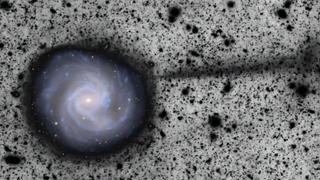
Rubin Observatory peers into the 'hidden universe' and discovers stream of stars longer than our entire Milky Way
By Robert Lea published
"The discovery of this stream highlights how much is still unknown about the life histories of galaxies, how the hidden universe shapes the realms that we can see."
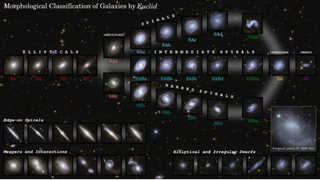
The Euclid space telescope observed 1.2 million galaxies in just 1 year. Here's what we've learned
By Robert Lea published
The data is starting to reveal how galaxies and their black holes evolve.
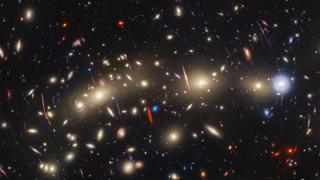
The James Webb Space Telescope may have finally found the 1st stars in the universe
By Robert Lea published
"We really needed the sensitivity of JWST. We also needed the 100 times magnification from gravitational lensing from a galaxy cluster between us and LAP1-B."
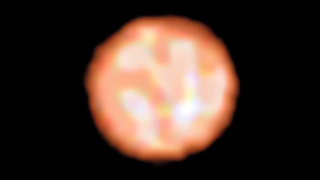
Huge red giant star has newfound companion — and it may be a bad neighbor
By Robert Lea published
"Throwing a close companion into the mix could possibly wreak further havoc on the already complicated processes surrounding these stars."
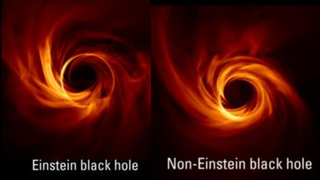
As our black hole images get more detailed, we may find Einstein wasn't quite right about them
By Robert Lea published
Albert Einstein's theory of gravity, general relativity, may not be the best recipe to describe black holes.
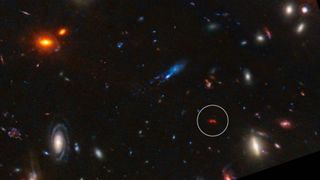
'Superheated' stellar factory in the early cosmos is producing stars 180 times faster than the Milky Way
By Robert Lea published
"Even though it's the first time we've seen a galaxy like this, we think that there could be many more out there."
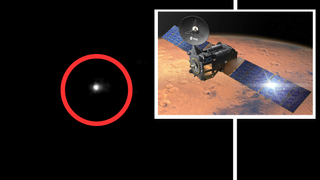
Mars spacecraft images pinpoint comet 3I/ATLAS's path with 10x higher accuracy. This could help us protect Earth someday
By Robert Lea published
This is great news for planetary defense.
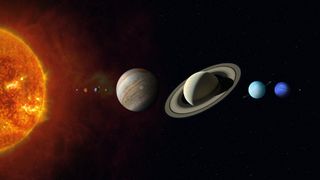
The solar system may be racing through space 3 times faster than expected. Is the standard model of cosmology wrong?
By Robert Lea published
The solar system is moving through space over three times as fast as estimated, calling into question our best model of the universe and its evolution.
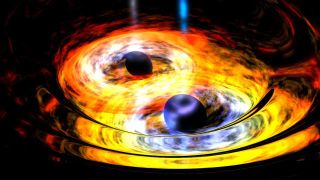
Scientists solve the mystery of 'impossible' merger of 'forbidden' black holes
By Robert Lea published
Scientists may have solved the mystery of an "impossible" merger between two black holes so massive and fast-spinning that they shouldn't even exist, according to current theory.
Breaking space news, the latest updates on rocket launches, skywatching events and more!

